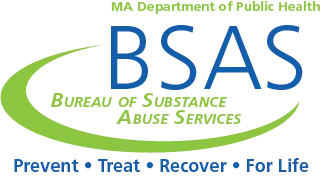Meth Detox Center in Weston, MA
In the United States, the use of meth has steadily risen from 2014 until 2024. The latest data that can be verified indicates that roughly 2.5 million people in the country have used meth in various forms during the last 12 months. That information comes from 2021.
The trend at the time was that it would continue to rise. Now, three years later, it’s likely more than the 0.9% of the population that the previous data showed, and that information comes from 2021. The numbers of people experiencing full methamphetamine use disorder are no less sobering: more than 1.6 million people. More than 32,000 people died during those same 12 months, and many of them were first-time users.
I. What Makes Meth So Dangerous?
Meth is notorious for its “quick high,” which leads many users to use again and again in quick succession. This is the chief reason that the drug is so dangerous. Many of the deaths associated with methamphetamine use disorder happen because the users take too much of the drug too quickly in an effort to “chase the rush.” The urge to use becomes so overwhelming that users often don’t eat or drink for days, which can, in and of itself, be lethal, particularly the “no drinking” part. People who don’t eat can survive several weeks, possibly even months, but without water, even three days can result in death. The irony is that, by eschewing fluids of any kind, even if they decide to try to stop using, they could very likely die anyway. The powerful rush from smoking or injecting it is more powerful than the milder sense of euphoria that results from snorting it or eating it.
Using meth is life-threatening. Therefore, getting professional help is essential in your fight to come back from methamphetamine use disorder. There have, however, been some changes to the treatment regimen during the last few years. In the past, the focus was punitive: The person with the disorder was deemed to be faulty in some way and deserving of punishment. Concurrent research showed the faults in that strategy. Consequently, the philosophy of treatment centers morphed into a client-centric model that focuses on recovery rather than punishment. Still, the treatment requires the attention of a dedicated group of medical professionals and support staff because people with methamphetamine use disorder aren’t able to monitor themselves while high or experiencing withdrawal.
II. Why Is Rehab Crucial for the Treatment of Methamphetamine Use Disorder?
Not for the least of reasons, the process of withdrawal is supremely uncomfortable and dangerous, so around-the-clock monitoring is essential for the client’s protection and well-being. Such a controlled environment is the best way to protect the client’s health and start them on the road to recovery. Additionally, a rehab clinic has all the necessary support facilities and staff in one place, so there’s no carting the person around by ambulance.
The simple fact is that methamphetamine use disorder does horrifying things to the body. The worst damage is done over the long term. Damage to every major organ is common, including the heart, lungs, kidneys, liver, and brain. Less dangerous but still severe are the dental changes, which usually result in tooth loss. It’s not uncommon for someone using meth chronically to lose every single tooth. Methamphetamine use disorder also causes mental health issues, and these include hallucinations, delusions, changes in personality, and recurring violent behavior. Even if the client stops using, the mental health conditions could persist for years thereafter. Without treatment, methamphetamine use disorder usually ends in death.
Recovery from methamphetamine use disorder is a lifelong proposition. Even people who successfully complete rehab might start using again within five years. The numbers are staggering: Nearly two in three will return to use during the first year, and even if people make it through the first year, the rate of return to use during years two through five is one in four. If someone were to be able to stop using without treatment, the rate of return to use is 95%. Most of the time, the return to use happens within three months. Part of the trend away from punitive rehab treatment is including the entire family as a support system for the person with methamphetamine use disorder. In Weston, MA, Charles River Recovery is one of the rehab facilities that focuses on this new method.
III. What Are the Kinds of Available Rehab Programs?
Normally, there are three forms of rehab: in-client, out-client, and residential. Every client will respond differently to each of the three methods. Appropriateness for the particular client and the strengths and weaknesses of each of the treatment methods are all considerations for which treatment might be right for any particular person. SAMHSA classifies out-client treatment as a situation where you live at your primary residence but travel to appointments with the members of your treatment team, which could include physicians, psychiatrists, and counselors. Going to group therapy sessions is common. And, in the 21st century, conducting such appointments by video call is increasingly commonplace.
In-client treatment is what most people think of when they think of rehab: 30-day, self-contained programs. During those 30 days, you’ll stay at the treatment center. The advantage of in-client treatment is that you can receive the 24-hour care that you might need, based on your particular situation. It’s also common for these treatment programs to be affiliated with a hospital so that clients can get immediate emergency treatment if it’s necessary.
Residential programs are basically long-haul versions of in-client programs. Generally, residential programs are for the most serious cases of substance use disorder of any kind. Such cases could also include dual diagnoses. In the very severest instances, it’s possible for the client to be at the treatment center for a year or more.
There might come a time when you need treatment for methamphetamine use disorder, but there are no available spots at Charles River Recovery. It is in these cases where interim care is important. While it is true that you’ll be “treading water” during interim care, such care is useful in making sure that you don’t get worse while waiting for a place to open in a full-fledged treatment center.
IV. What Goes Into Methamphetamine Detoxification?
The entire process is complex. One of the most common complications is a form of psychosis that develops during withdrawal. Hypersomnia, anxiety, and both physical and mental exhaustion also occur. In some instances, you can experience symptoms that mimic depressive disorder. Both physical dependence and pleasure dependence create intolerable cravings.
There are mild symptoms, too. Things like muscle aches and irritability are quite common. Although these mild symptoms are easily settled, the serious withdrawal effects require constant supervision and specialized treatment options. One of the key obstacles when it comes to detoxing from meth is that some of the treatments rely on substances that are also prone to misuse. For example, to combat the psychosis and anxiety, benzodiazepines are the usual choice. Haloperidol and aripiprazole are also useful in some cases. Medical personnel should only prescribe these medications in the smallest efficacious dose possible and for the shortest time possible. Meth detox can sometimes last more than a month, but three weeks is the most common time frame. The more serious the methamphetamine use disorder, the longer the detox will take.
The number one reason that 24-hour monitoring is crucial is that the anxiety and psychosis can lead to destructive behaviors that are often violent. Most of the time, there is a danger that clients will harm themselves. It’s also important because medical professionals can notice and identify comorbid conditions and provide the applicable treatments. It’s not uncommon for the most violent clients to need sedation for their own protection and for that of others.
V. What Kind of Rehab Center Should I Choose?
Other than in situations where a certain kind of rehab therapy is medically necessary or mandated by law-enforcement agencies, after conferring with a doctor, you can jointly select the best program for your case.
Because of the complexity of treating methamphetamine use disorder, no two clients will need exactly the same treatment. That’s why selecting a rehab center with a client-centric focus is so important. Additionally, seeking a treatment center that provides customized treatments is wise.
The center’s treatment regimen should be evidence-based and backed by peer-reviewed research. The facility in question shouldn’t make any kind of claims about treatment success that isn’t evidence-based. Quackery, unfortunately, abounds, and it’s necessary either to review the relevant information yourself or have someone do it for you if you’re not in the right state of mind. Other than checking up on the facility’s processes, it’s also wise to look up the staff’s qualifications, certifications, licenses, and specialized training.
For safe and effective treatments, the best place to start is to determine the client’s allergies to certain medications. Also, based on any legitimate drugs the client may have to take for one or more medical conditions, searching for contraindications is also wise. It’s also possible that, even if someone isn’t allergic to something or has a contraindication, a medication might not work for that person, necessitating a search for alternatives.
VI. What Are the Benefits of Meth Rehab?
Effective communication between the client and the treatment team is essential. Therefore, the chief benefit of going through treatment for methamphetamine use disorder is that it’s more likely that you won’t die. Of course, there are no guarantees with any medical procedure or treatment, but attending a qualified rehab treatment center that provides evidence-based care practices and customizes treatment to your specific needs will usually achieve the most practicable results. Rehab treatment also helps with your mental as well as physical health. Indeed, psychiatric treatment can often be as important as supportive physical treatment.
VII. What Should I Expect During Meth Rehab?
For something as complicated as the treatment for methamphetamine use disorder, the general progression of things is remarkably simple: detox, therapy, discharge. Of course, how long the treatment lasts depends on the specifics of each case. As an example, let’s say that you’re a long-time heavy user of meth. Your treatment could require a residential spot where you will participate in dialectical behavioral therapy. This form of therapy could last more than a year. If, however, you’ve only used two or three times, and your friends have convinced you to get treatment before your usage gets worse, you might be able to complete a short stint of out-client therapy to be successful.
As with any substance use disorder, the goal is not a “cure.” Because of the lifelong nature of the condition, the goal is to provide you with coping mechanisms and other strategies to manage your methamphetamine use disorder. Community support is crucial, especially from friends and family. Discharge isn’t the end of the journey. Aftercare for the rest of your life is important, too, for your continued success.
VIII. Conclusion
The concept of shaming someone for experiencing a substance use disorder is passe. Substance use disorder is a disease that requires lifelong treatment. Walking through the door of Charles River Recovery will take great bravery, and doing so shouldn’t carry a stigma. Getting such treatment is in the same category as getting an antibiotic for an infection. We’re ready to help you. All you need to do is call us to set up an appointment.





